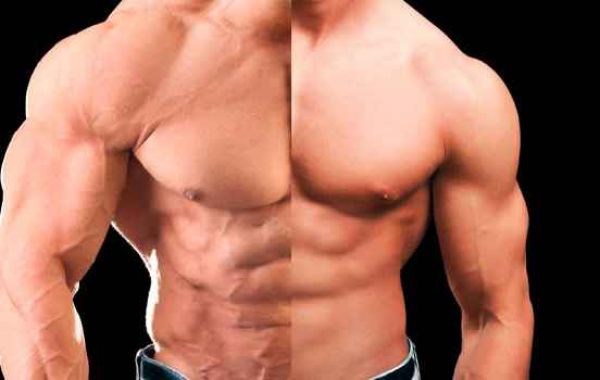Many athletes and those who simply want to achieve better physical shape resort to the use of growth hormone. There are many rumors about this miracle drug about its dangers and benefits. What actually hides growth hormone and what side effects can you expect from it?
Facts
Scientists have conducted a lot of studies confirming the exceptional benefits of the hormone, if you use it in the recommended amounts and do not exceed the permissible dosages. Nevertheless, growth hormone can cause some side effects, most of which are temporary in nature and are caused by an incorrectly calculated course of the drug. Possible problems:
Numbness and pain in the joints of the legs and arms, often referred to as tunnel syndrome. This can be provoked as a result of a sharp increase in the volume of tendons and ligaments (mainly due to water), which begin to put pressure on the nerves that go to different limbs. This usually goes away quickly after lowering the dosage of the drug. Probability of manifestation in 10-20% of cases;
Puffiness. For the period of the growth hormone cycle, experts recommend reducing the intake of salty foods and giving up alcohol, since these foods provoke additional water retention. The accumulation of fluid is most felt in the limbs, especially in the fingers and hands. The unpleasant sensation is easily eliminated with the help of special gymnastics;
Increased blood pressure. This symptom does not appear often, to prevent it, it is recommended to reduce the dosage, or to take drugs that normalize blood pressure;
Soreness at injection sites. Many people experience this side effect. The injection sites may be swollen, reddened, itchy, and painful. The effect is temporary, it goes away quickly on its own. In some cases, the problem can be solved by taking antihistamines (if the recipient has an allergy), or changing the solvent (it is recommended to use sodium chloride solution). This is mainly due to the individual irritable reaction of the body to mannitol (a binder of growth hormone).
Internal organ growth. Looking at the big bellies of performing bodybuilders, many ordinary people think that this is all due to the use of growth hormone. But everything is not so simple. Growth hormone, in fact, in long-term use, can cause enlargement of internal organs, like all other parts of the body, but this applies to very high dosages, usually 20-30 U / day for several years.This is possible only in professional sports, where athletes are ready for anything, for the sake of the cherished increase in muscle mass while maintaining dryness. And big bellies are actually a sign of eating a lot of food, which is why the stomach is stretched and a kind of protrusion of the abdomen outward like in pregnant women.
Increased blood sugar and suppression of pancreatic function. Glucose does increase after an injection of growth hormone, but this is one of its actions, and this is how growth hormone should work. Therefore, try to stick to a diet of complex carbohydrates and proteins. As for the pancreas and insulin, if your course lasts 2-3 months at dosages of 5-10 U / day, then you have nothing to worry about. Usually, supportive drugs are used for long-term use (more than 3-4 months in a row).
Have side effects? - Better consult with doctors https://optimalhormonetherapy.com/side-effects-hgh.html
Sometimes, athletes note slight depression and weakness at the beginning of the course, but as a rule, this condition disappears after a few days of use. This is due mainly to the adaptation of the body to new conditions, in particular, the restructuring of the work of the pituitary gland and hypothalamus.






